Social Media Detox: Is It Good or Bad for Business? (What You Need to Know)
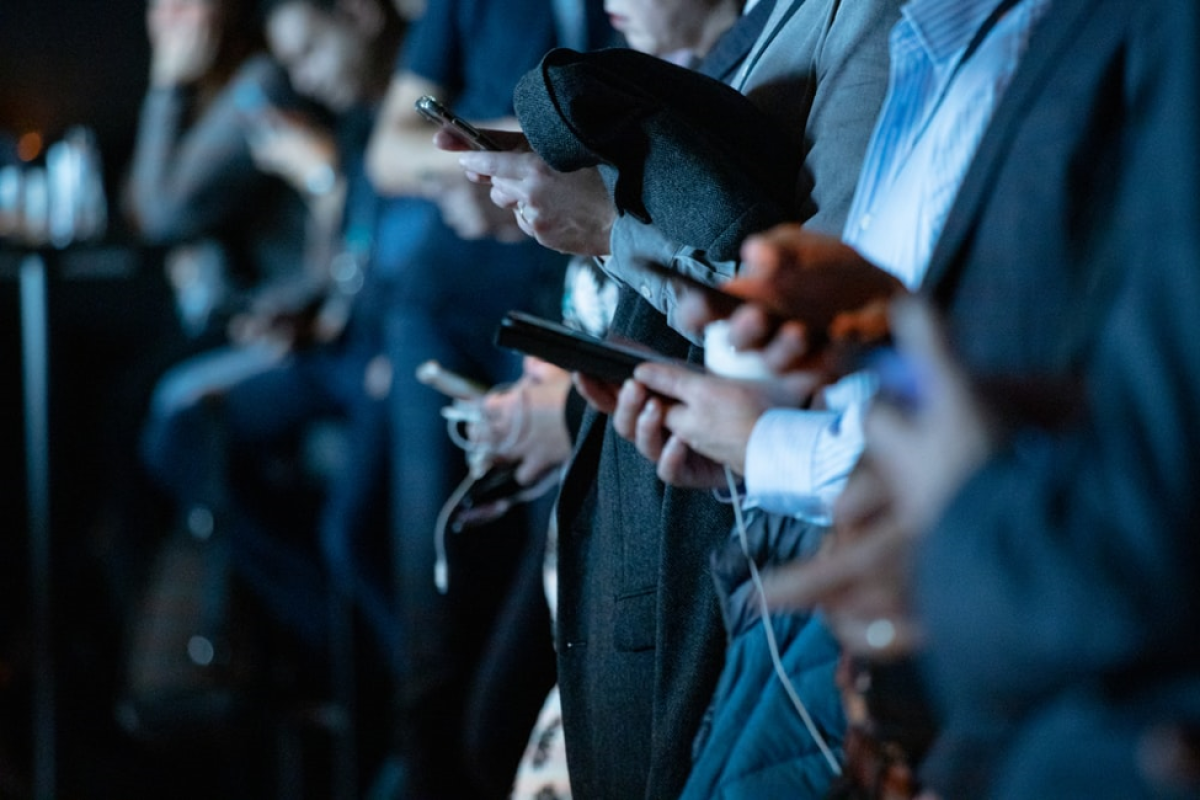
In our world, also concidered ‘the fast-paced era, ’ digitalization madness is prevalent. Attention spans are continuously decreasing and the number of digital maniacs is rising.
Social media addiction is also getting worse, affecting everyone from ordinary folks to influencers. Many of us are too inflicted by the addiction that we grab our cell phones as soon as the crack of the dawn. What's worse, the addiction to digital media is spreading at an alarming rate, which is now the cause for concern.
Being a marketer, all we have had heard from the start of our social media journey to date is that increasing customer engagement and creating a constant flow of relevant content for social media and other digital media is the way to go and a priority for any marketer to survive and grow.
But little have we been told that getting a digital detox is as important as implementating any of the many digital marketing strategies that exists. Getting a little twitchy already hearing that? Yes, a digital detox is more of a necessity today for anyone who cares about their well-being.
To find out why digital detox is a rising phenominon thesedays, let’s delve in and explore the significance of a strategic social media detox. Hopefully, this will spark inspiration and the creativity of brands and marketers that may be lacking.
A Primer on Digital Detox and Its Importance
The name itself, digital detox, gives away the basic idea. That’s right; it’s all about taking a break from the hustle and bustle of digitization and digital media.
Brands too have realized that even though life might look convenient with digital technology, the obsession and incessant use of digital media is gulping down our joy and contentment. In a sad twist of irony, social media addiction is driving people nuts and rendering users a social mess.
Today, our thumbs move faster than our minds, reducing our attention spans and severly impacting our real-world personal and professional relationships offline. This brings technology-related stress in our real lives and costs us our joy and peace of mind, which is precisely why the idea of a digital detox is so important.
The pressure to keep up with the Joneses and fads spread online is at an all time high on social media. Unplugging from digital media and pausing relentless social media use helps both brands and individuals to declutter their minds, refocus their attention away from the virtual world and redirect resources and time elsewere to spike-up real world productivity and social engangement.
The National Day of Unplugging, which advocates for a 24 hour global respite from technology to highlight the value of disconnecting from digital devices in order to connect with ourselves, our loved ones and our communities in real time, says that people increasingly miss out on the important moments of life because we pass too many hours with our noses buried in our devices.
The movement to unplug calls on people to take a digital detox and suspend our over-use of tech gadgets. Many people have headed this call and are choosing to unplug for a wide number of reasons, including “to reset,” “to spend more time with my family,” “so my eye will stop twitching,” “to bring back the beauty of life,” and “to be more in the moment.”
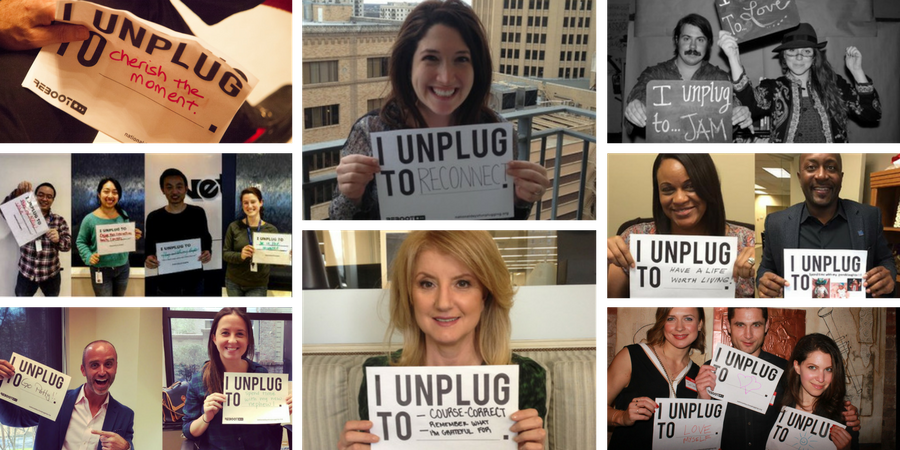
People holding self-portraits of why they unplug. Image: The National Day of Unplugging.
The question that you may now have is whether the rising social media detox movement is going to bring positive outcomes for your brand or hurt the businesses that have come to rely on digital media for their marketing goals?
Will the move to cutback on social media prove to be a welcome trend or a bad move with the worst outcomes for brands?
Is the Social Media Detox Movement Helping or Hurting Businesses?
Well, there are strong points on both ends of the debate for or against social media detox, but it’s safe to say that a digital detox is actually a very good thing for ordinary users and laypeople.
However, the question still remains, will the call to unplug from digital media work for marketers and brands? Or, will this call kill digital marketing and drain all the digital gains away from brands?
An answer to that questions, which may come as a surprise, is no. No, a digital detox won’t affect brands’ turnover in the long-term. Although brands may witness a minor fall in returns initially, a thing to remember throughout the process is that the gap is expected to level out in time and won’t impact business so much.
From studies we’ve reviewed, the evidence shows that the majority of people who unplug from tech and social media usually consist mostly of inactive users or occasional users. That means the total loss or impact on businesses and other social media users will largely be minimal.
So, looking at the bigger picture, the digital detox trend doesn’t really threaten the success of digital marketing so much or lead to social media marketers’ efforts going in vain, although it could.
Besides, every business needs customers and leads who are mentally stable and healthy to conduct good business with them online or offline. That means a digital detox may actually be a good thing for business.
The main reason for increased calls for a digital detox is that impulsive and obsessive social media use has been identified as a cause of many mental illnesses among users. This association of digital media with mental health issues has resulted in an ill-repute of social media platforms.
Even though many mental health experts have backed the finding that digital media can adversely affects humans, still a considerable number of brands are in favor of continued social media use. Compulsive social media use in the wider population is thought to cause users to consistently act on brand messages, which increases sales.
However, according to the American Psychological Association center (APA), more than half (65%) of Americans go on a digital detox occasionally, which they say grants them a sense of control over digital and social media pressures. Those who are constantly checking electronic devices experience less control and are linked to significant technology-related stress.
“The emergence of mobile devices and social networks over the last decade has certainly changed the way Americans live and communicate on a daily basis,” Lynn Bufka, PhD, APA’s associate executive director for practice research and policy, notes. “Today, almost all American adults own at least one electronic device, with many being constantly connected to them. What these individuals don’t consider is that while technology helps us in many ways, being constantly connected can have a negative impact on both their physical and mental health.”
It’s best for people to limit social media and maintain a healthy balance with digital media to avoid health issues. And even if other experts predict that unplugging isn't easy now, and will be even tougher by 2026, that doesn’t refute the fact that unplugging can be very helpful.
The glowing screens have transformed our lives, but minimizing use can foster better sleep, better quality work and better social relationships, without costing us our mental and emotional health.
Measures to Counter Any Digital Detox Drawbacks for Brands
A digital detox can be a healthy switch for both users and brands. It is, therefore, crucial that brands delve deeper into minding the wellbeing of their audience and start focusing more on quality than merely generating large quantities of content for the sake of it.
That can lead to better engagement and customer loyalty.
More than anything, brands must adapt to the digital detox movement and offer enhanced experiences and better quality ads since more users will now be spending less time on social media.
Start investing in your advertising creatives and market more powerfully to ensure your brand messages hit home in the first run and stay top of people’s minds for longer without having to contantly blast the ads and promotions online every other minute.
Exploit the Digital Detox Trend to Revive Customer Loyalty
The switch from always online to mostly offline due to a digital detox might initially look scary, but this can prove to be the right move for brands.
Brands can seamlessly blend their online presence with their offline one. As a marketer, you can take inspiration from a multitude of brands using this approach.
As more and more brands are jumping onto the digital detox bandwagon, many have made the switch from merely pushing for engagement online to offline. For example, approximately half of leading brands manufacturing linen clothing for women advocate for periodically “unplugging” from technology, which incidentally has resulted in increased customer engagement and loyalty.
These brands promoting a digital media detox, which may seem counterintuitive, are taking the initiative to raise the bar for more positive customer experiences and well-being. The strategy is helping brands associated with apparel and fashion to gain more prominence as they demonstrate that they value people’s well-being and health more than just making profits. That is very appealling to the masses and helps to convert people into loyal customers and brand advocates.
So, instead of viewing the social media detox trend as a threat and a bad thing, brands can instead embrace the change and make necessary modifications in their marketing strategies to deliver more valuable experiences that engage customers, while also promoting their well-being.



![9 Tips for Managing Your Online Writing Projects Efficiently [node:titile]](/sites/default/files/styles/thumbnail_rectangle/public/open-book-laptop-online-writing-tips.jpeg?itok=iq4PIT7b)




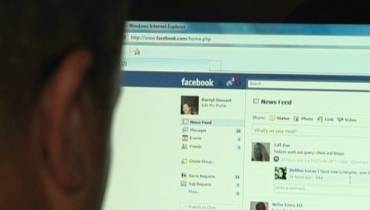
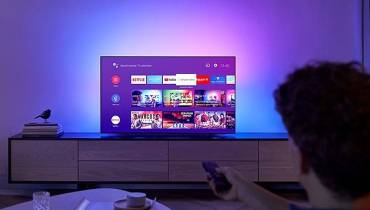

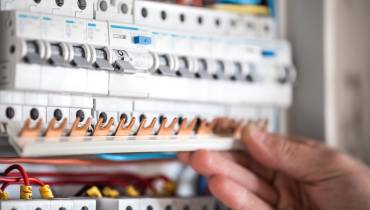








![Live Simply and Reduce Carbon Footprint: 5 Ideas for Your New Tiny House [node:title]](/sites/default/files/styles/video_thumbnail_bottom/public/rob-greenfield-tiny-house-in-orlando.jpg?itok=Iy7NKIYY)
